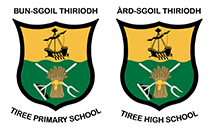Introduction:
Modern Studies helps to give learners a better insight into our society. Through this course, learners will study society and gain a clearer understanding of important ideas, such as conflict, democracy and inequality. The Course will also develop the skills to help pupils understand and participate in the social and political processes they will encounter in the future. In the world we currently live in, with all of its social & political challenges and uncertainties, Modern Studies helps build a greater confidence in pupils as they begin to participate more fully in the world around them.
Entry Requirements
Higher
To do the course pupils will normally have completed the National 5 Modern Studies Course, preferably with a grade B and above.
Course Outline:
This Course has three units. ‘Added value’ will also be assessed & for Higher this will be included in the overall Course Assessment.
The Units are as follows:
* Democracy in Scotland & the UK – UK
* Social Issues in the UK – Social Inequality
* International Issues
Aims & Methods:
Modern Studies draws on the social sciences of politics, sociology and economics and so is a subject with a multi-disciplinary approach.
The main aims of Modern Studies at Higher are to enable pupils to develop:
* a range of research and evaluating skills
* understanding of the democratic process and complex political issues
* understanding of complex social and economic issues at local, Scottish, national and international levels and ways of addressing needs and inequalities
* understanding of different views about the extent of state involvement in society
* understanding of the nature and processes of conflict resolution
* understanding of the importance of human and legal rights and responsibilities and their application in different societies
All of this will be achieved using a variety of methods on a day to day basis, including the use of information technology, relevant forms of media, individual and group research activities and investigative tasks. These will help pupils develop skills in drawing conclusions from sources of evidence, making decisions and distinguishing between truth and falsehood – an important skill in the age of ‘fake news’. Class activities will be set in up in such a way that pupils are challenged to find relevant sources of information for themselves and then analyse the objectivity of their sources.
Homework:
This will be given on a regular basis and will take various forms, such as short answer questions, more detailed Knowledge and Skills based questions & a variety of research activities.
Course Assessment:
To gain an award for the Course, pupils must complete the units above and ultimately pass the Course assessment. Course assessment will provide the pupils with their overall grade.
In the Course Assessment, pupils will use & apply the skills, knowledge & understanding they have gained during the Course. The course assessment will consist of TWO parts – a question paper & an assignment. The question paper will involve pupils proving that they have gained a breadth of skills, knowledge and understanding by asking questions from across all three units.
The assignment asks learners to extend and apply their skills, knowledge and understanding and will be open and flexible to allow pupils to choose an area to investigate that really interests them. Pupils will research their chosen topic and will be expected to come in and write up their findings, evaluating their methods of research in the process. The assignment will make up one third of the pupils mark and the question paper will make up two thirds of their mark.
